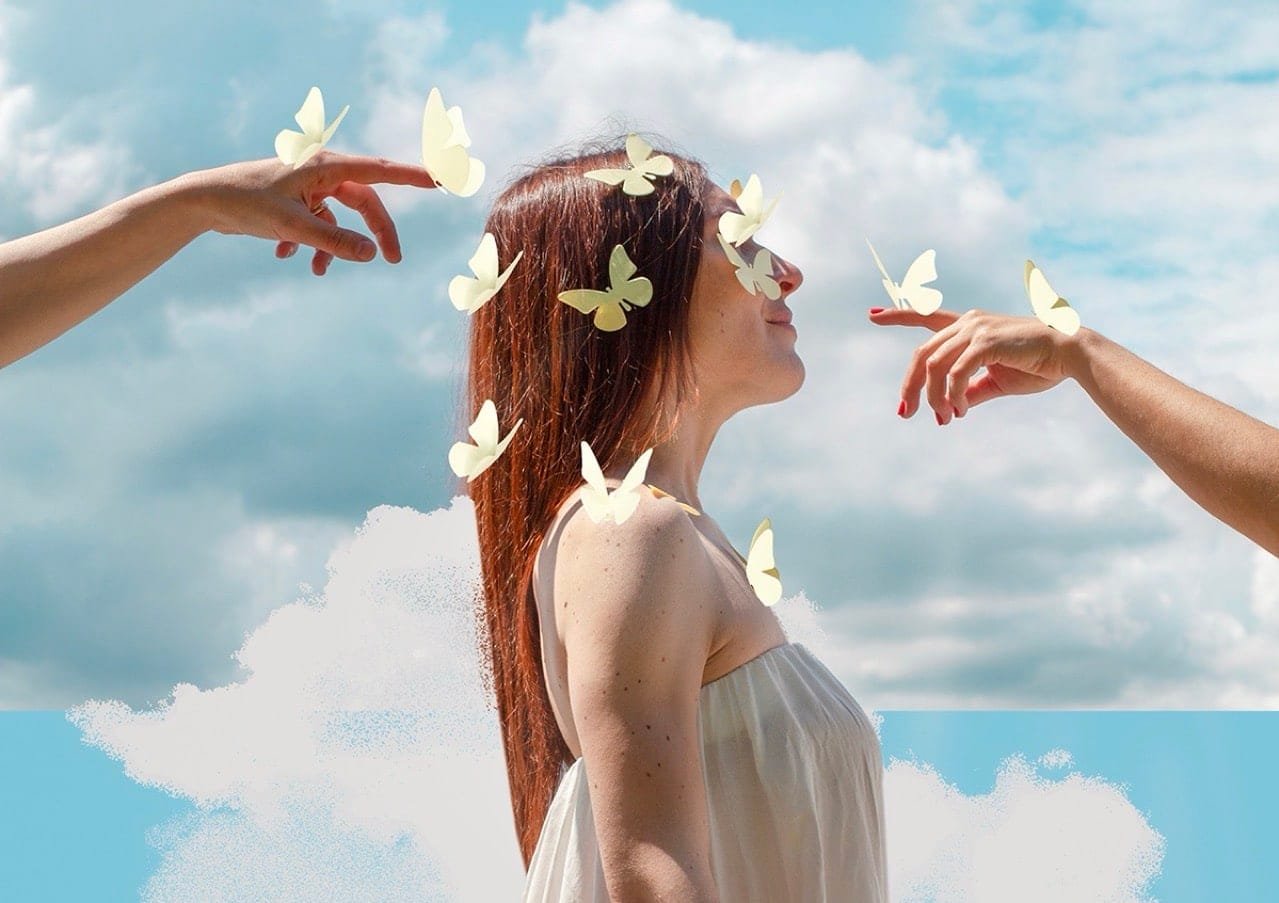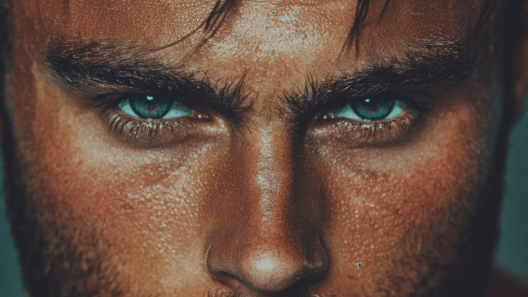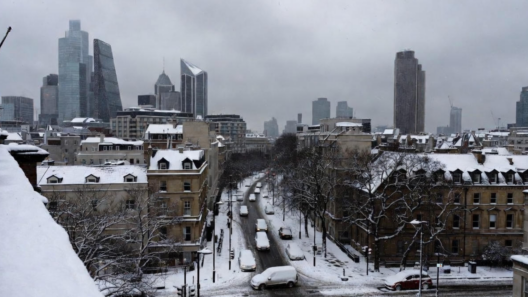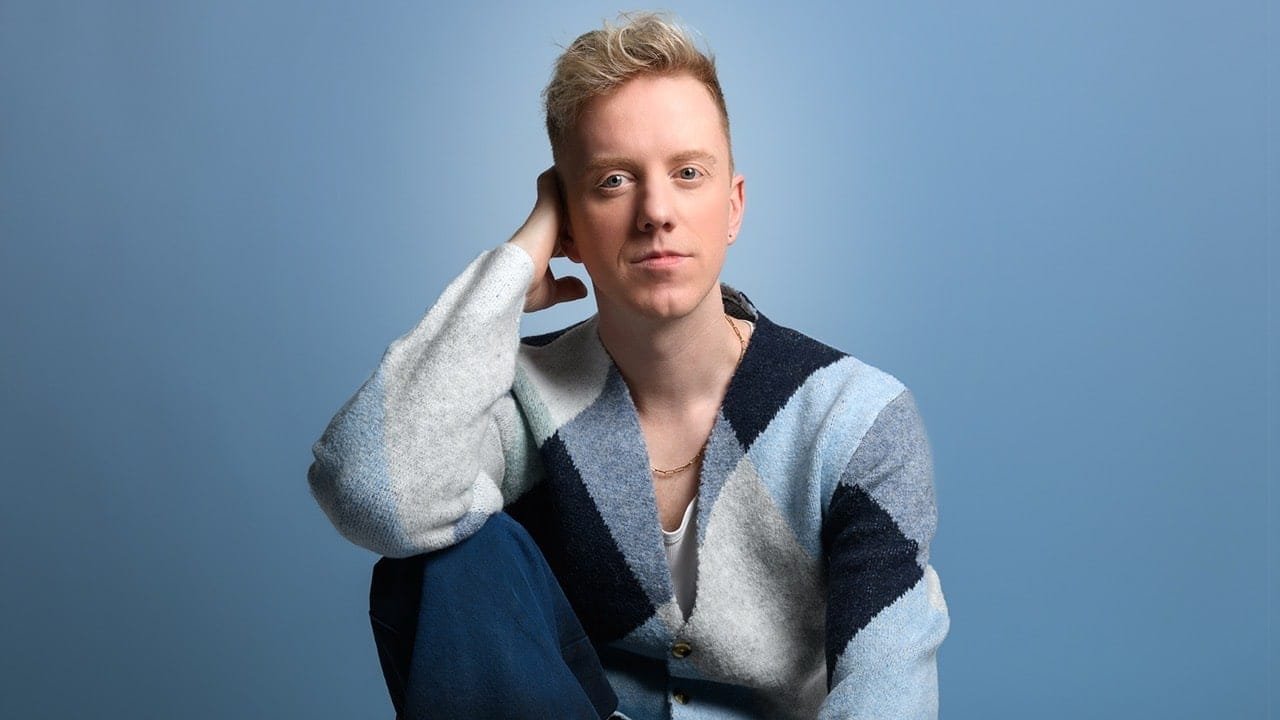James Barr doesn’t just tell jokes—he tells the truth. In his new show Sorry I Hurt Your Son (Said My Ex to My Mum), the beloved comedian, broadcaster and podcast host cracks open the trauma of queer abuse and turns it into a hilarious, heartbreaking, and healing experience. Now touring the UK after a run in Edinburgh and Adelaide, Barr is finally telling the story he needed to hear—because laughter, it turns out, might just be the final step in healing.
What inspired you to turn such a personal and painful experience into a comedy show?
Honestly, I really didn’t want to. I was quite happy performing gay jokes, but I was so traumatised by my ex-boyfriend’s violence that I stopped finding my own material funny. It felt like lying. I was on stage being camp and chaotic, but I wasn’t okay. I felt inauthentic.
Eventually, I realised I needed to process my pain the only way I knew how—on stage. At first, it was hard. I cried through shows. Audiences cried with me. I drank a lot of wine just to get through it. Then things shifted. I got angry. I wanted to make the audience feel what I’d felt. I thought if the world could see abuse, it would go away.
But then I forgave myself. I let go of the shame and the victim-blaming, and something unlocked. I found the funny again, but this time it was in my truth.
How did it feel the first time you performed Sorry I Hurt Your Son to a live audience?
It’s had so many different titles and iterations that it honestly feels like a never-ending work in progress. The show has mirrored my healing, so it’s hard to say when the first performance actually was. Technically in an Edinburgh basement in 2023. I also did a work-in-progress to a group of friends and family in November that year. It was raw, shaky, but important. Then I had my official premiere in Edinburgh last year, but I was still in my trauma. It felt raw. Then, before taking it to Australia in 2025, I rewrote the entire show. It’s now sharper, braver, and funnier. So my long winded answer to your question is that my first show honestly felt like it only just happened. And it felt electrifying to see an audience so deeply connected and healed by the end.
It’s finally becoming the show I needed, and after finishing that run down under I was so proud of myself I cried.
The title alone is bold and unforgettable. How did you land on it—and did it feel like reclaiming power?
Other titles have included Flamingo, Trauma, Pushy-Wushy Down the Stairsy-Wairsy, and Punchy Title. It’s been a journey but in the end I am happy with my choice. I was at brunch with a friend in 2024, having a meltdown about how impossible it was to name this show. That’s when my ex’s words to my mum suddenly stood out: “Sorry I hurt your son.”
It felt right. It said everything without me having to. I’ll never name him, but inscribing his final words to my mum across enormous posters in Scotland, Australia and beyond has felt very powerful. And who knows—maybe one of the other names will end up as the title of the special.
Domestic abuse is still a taboo topic, especially in queer spaces. What conversations do you hope this show sparks?
I hope it helps people realise that abuse doesn’t always look how we expect. It can be subtle, confusing, and hard to name. Especially in queer relationships where both people are often carrying trauma from a world that won’t love them as they are, it can feel even harder to recognise when something’s wrong.
There’s so much shame around it and I want this show to help give that shame back. It’s not ours to hold. I hope it sparks more conversations about what we’re willing to tolerate, what we’ve been taught to accept, and how we can begin to choose ourselves instead.
You’ve taken the show from Edinburgh to Adelaide—how have international audiences responded compared to those in the UK?
It showed me that the story really is universal. I already knew I wasn’t alone, but taking the improved edit of the show to the other side of the world and seeing it resonate even more strongly made that real. Probably over a thousand people have seen the show now, which is wild to say out loud. That tells me that this story matters. It’s valid. And I’m not the only one who needed to hear it. I can’t wait to take it on a UK tour now too.
Working with Madeleine Parry, who directed Nanette, must’ve been powerful. What did her guidance bring to your process?
Madeleine helped me shape the show into something that didn’t just tell the story—but held it and brought the audience on stage with me. She challenged me to go deeper, to ask bigger questions, and to trust the audience more. She’s incredibly smart, emotionally intuitive, and never let me hide behind a punchline.
I’d send her a script full of jokes and she’d ask, ‘what’s really happening here?’ And she was always right. The show wouldn’t be what it is without her. She helped me to find my voice.
You’re known for your quick wit and humour on radio and podcasts. How do you balance your comedic persona with this rawer, more vulnerable side?
I had to get comfortable sitting in the silence and that was horrendous. On the radio, if there’s silence for more than five seconds, multiple bosses and engineers across different transmitters get a text alert. It’s a full-scale emergency.
So letting a live audience go quiet without panicking or worrying that I was bombing? That took work. But I’ve learned that if there’s silence in the room, it’s because I chose it. I’m playing it. I feel like a DJ now dropping laughs, pulling back and letting the moment breathe. It’s made me a much better comic.
London’s creative scene—especially places like Shoreditch—is known for bold, honest storytelling. How has being part of that scene influenced your work?
London gave me permission to be weird. I grew up in Eastbourne, where standing out wasn’t always safe, but here, being bold is kind of expected. One of my first work-in-progress shows was in Dalston. I pretended to be a dog and made the audience pet me. That was a real low. But also… a turning point?
The city encourages you to try things, to be unfiltered, to fail loudly. It made me braver. London didn’t just influence my work. It gave me the confidence to be completely myself on stage, even when I had no idea what I was doing.
xxx
James Barr is on tour with his stand-up show ‘Sorry I Hurt Your Son (Said My Ex to My Mum)’ at various places across the UK. For more information and tickets, visit: https://jamesbarruktour.tix.to/Tickets






